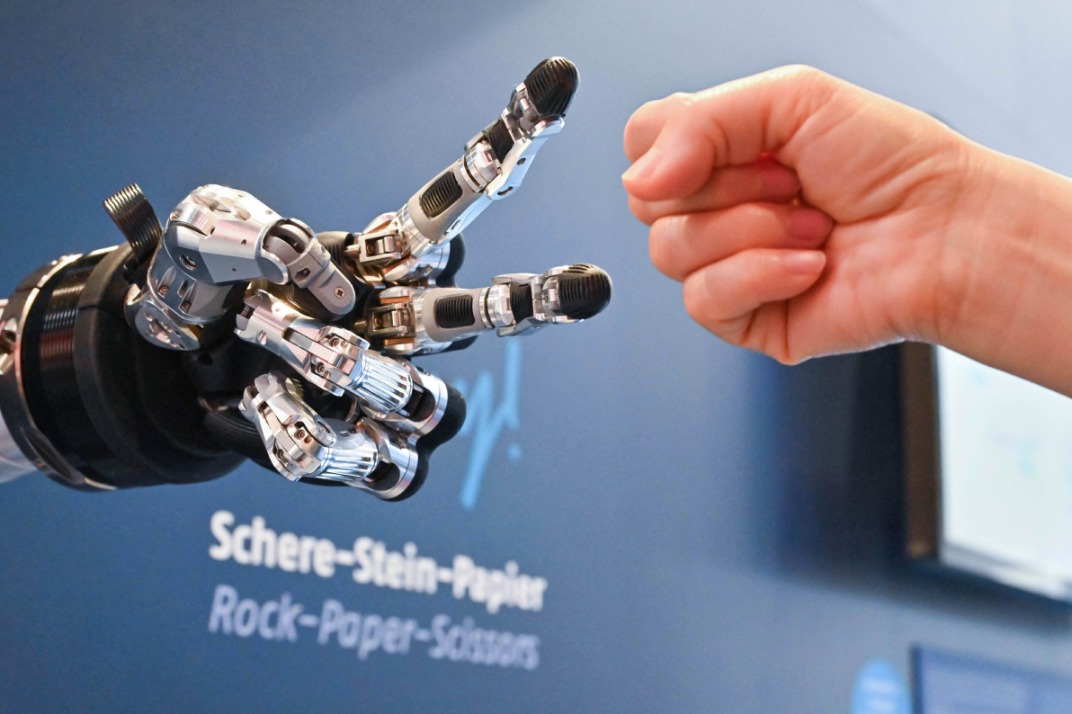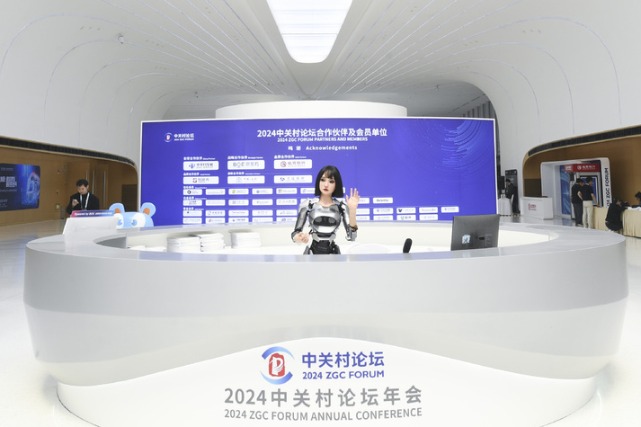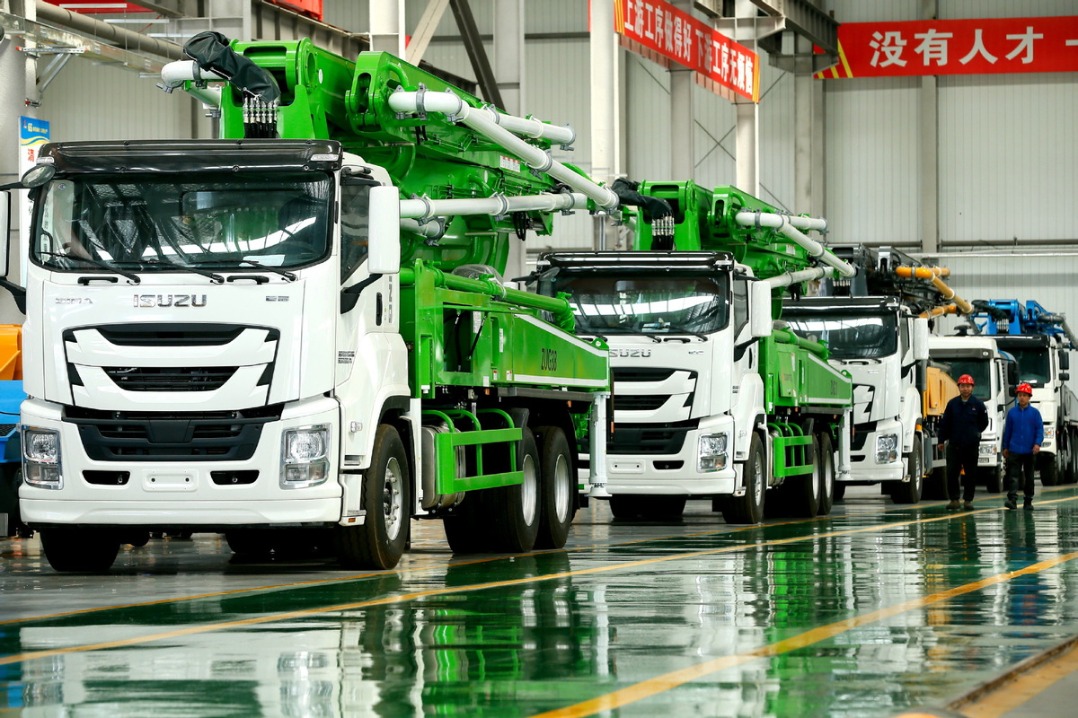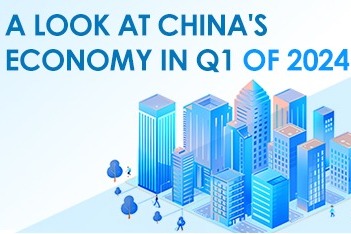Challenges and opportunities ahead

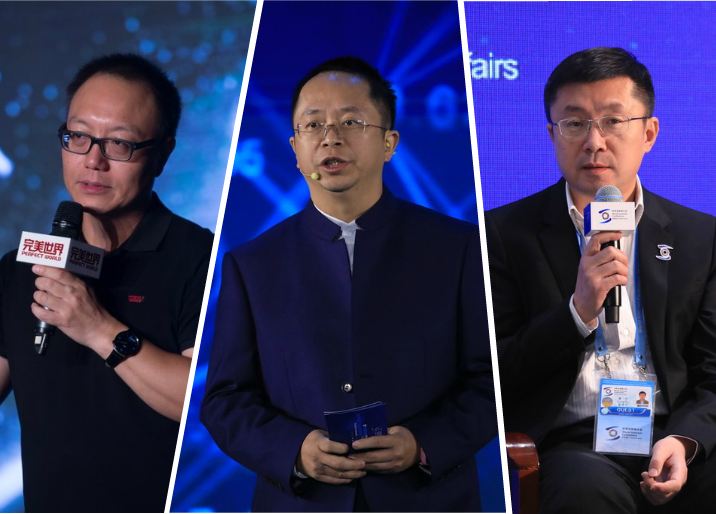
From your perspective, what are the characteristics of a powerful internet nation? What do you think are the advantages and challenges for China as it strives to be a formidable internet nation?
Xiao Hong: The characteristics of a powerful internet nation include the following: a global-leading innovative capacity of internet technologies and a sense of responsibility to work together to jointly build a community with a shared future in cyberspace.
China's strength lies in its leading industries, such as e-commerce and sharing economy. And in the future, China will make further breakthroughs in cutting-edge technologies including artificial intelligence, big data and cloud computing.
What's more, China, with the largest population of internet users in the world, which is over 800 million, has already established an online environment of e-payment.
However, China is also faced with challenges on its way to becoming a powerful internet nation. For starters, there is room for improvement in its network infrastructure. Furthermore, the "information island" phenomenon still exists in China.
Zhou Hongyi: The key characteristic of a powerful internet country is to master the core technologies, such as the key cybersecurity technologies. With powerful core technologies, a country will be able to actively participate in the governance and construction of the global cyberspace.
President Xi Jinping said that without cybersecurity, there is no national security. Globally, the cybersecurity threats are increasing. During this year's Summer Davos Forum, cybersecurity was defined as the third largest risk after natural disasters and extreme weather. The overall cybersecurity capability is definitely one of the key signs of a powerful internet country.
China has an institutional advantage that other countries don't - the strong governmental support for the internet industry. It is possible to foresee that the government will give stronger support in the future. And the support will promote the accelerated development of the industry.
I think the main challenge will be around the talent. The talent backs the innovation. Compared with developed countries, our internet industry needs more talent.
Gong Yu: China is currently transforming itself into a leading internet power.
In the future, the internet and other related technologies will promote the continuous transformation and upgrading of the real economy through integration with other industries, and thus lay a solid foundation for sustained economic growth.
This is also the way China must go to become a leading cyber power.
Buoyed by the government's open attitude and supportive policies as well as the steady growth of the overall economy, China's internet industry has experienced rapid development in recent years.
In order to become a leading cyber power, China needs to adhere to technological innovation and attach more importance to the establishment of talent training mechanisms. That would provide continuous driving power for the long-term development of China's internet industry.
In the past year, what transformations in the internet or technology sector do you think have the ability to influence our future or the future of the industry? What do you think are the reasons for this transformation?
Xiao Hong: The tremendous development of artificial intelligence and blockchain technology, as well as transformations in fields of internet sharing economy and new retail, will bring a positive impact on future industry development, as well as people's lives. It is especially true in the field of artificial intelligence development, where a wave for globalization has been spotted.
China is accelerating the deployment of artificial intelligence. A Next Generation Artificial Intelligence Development Plan issued by the State Council has set up the following strategic objectives for the development of China's new generation of artificial intelligence: By 2020, the overall technology and application of artificial intelligence will be in step with globally advanced levels; by 2025, artificial intelligence will become the main driving force for China's industrial upgrading and economic transformation; by 2030, China will become the world's primary artificial intelligence innovation center.
In recent years, China's artificial intelligence has achieved rapid progress in various fields such as technology and application. At present, the industrialization of artificial intelligence research achievement has entered the fast lane, and will be further expanded in four directions, including unmanned driving, smart city, medical imaging and speech recognition, which will have a huge impact on our future lives. At the same time, China's artificial intelligence development environment is also continuously being optimized, which will further lay a solid foundation for the future advancement of artificial intelligence and the fusion of artificial intelligence and the real economy.
Such transformation lies on people's yearning for a better life, which urges the continuous escalation of the consumption structure, and promotes the innovation and upgrading of new technologies and new business models.
Zhou Hongyi: A lot of smart brains have emerged this year. Most of China's top tech companies have issued their own brain plans based on AI technologies.
In May this year, we unveiled the 360 Brain of Security, the world's first brain program in the cybersecurity sector. Based on AI technologies, the plan aims to address the security challenges brought by the intelligent era.
In the future, the smart brain will continue to evolve from the current version, achieving a higher level of perception, judgment, decision-making and feedback. And thus it will offer more intelligent and integrated cybersecurity protection.
Together with other brain technologies, the security brain will profoundly affect production and lives in the future. The goal of the security brain is to let people enjoy the future smart life with no worries.
Gong Yu: In the past decades, the internet has transformed a wide range of industries in innovative ways. Compared with traditional entertainment media, internet media platforms collect a large amount of information on the power of technologies, and make it easier for users to find information by browsing and searching online. Powered by AI, it is being turned into reality that users will get exactly what they expect. In the future, AI will help improve user experiences and increase monetization capabilities, as well as improve the ecosystem efficiency.
In the next few years, which sector do you think will most likely become a disruptor in the internet or technology space? In other words, what do you think will be the next hotspot or major trend?
Xiao Hong: With the rapid development of the internet industry, the roadmap of future development is clearly revealed. For the moment, at least three major developments will become hotspots in the future internet industry: artificial intelligence, big data application and smart city.
A development trend of mutual influence and mutual reinforcement has been formed among the three industries. The development in big data technology will provide the basis for data research for artificial intelligence, and artificial intelligence will in turn provide efficient data mining and promote the application of big data technology. Both big data and artificial intelligence will serve as the strong foundation in the development of smart cities. By improving existing urban information and communication technologies such as big data, artificial intelligence, cloud computing and internet of things, we can intelligently collect, monitor, analyze and integrate key information in the core system of city operations at a faster pace, and respond smartly to various demands from areas such as people's livelihood, environmental protection, public safety, urban service and industrial and commercial activities, and create a better urban life for mankind.
Leading internet-based companies in China are actively expanding their business in the above-mentioned fields in order to establish a pre-emptive advantage in the future.
Zhou Hongyi: At present, we can see the major future trend is AI and the internet of everything. Once the two technologies have progressed to a certain advanced level, they will entirely change our lives and even the whole world.
Gong Yu: AI, big data and other technologies will be more and more often applied to the production and distribution of entertainment content. And technological innovation will also bring a shift in the trend of entertainment content.
We believe that the vertical content will become one of the future trends. More than 70 percent of Chinese users will frequently use vertical screen devices like mobile phones to spend their fragmented time. And viewing vertical videos is the natural way to use cellphones.
IQiyi has already worked on the emerging business. Now we have several studios partnering with outside resources to cultivate the grassroots users and online celebrities to professionals who are able to produce high-quality vertical content. With the new trend on the horizon, we will see changes in the way of viewing and consumption, which will also affect the marketing.
















